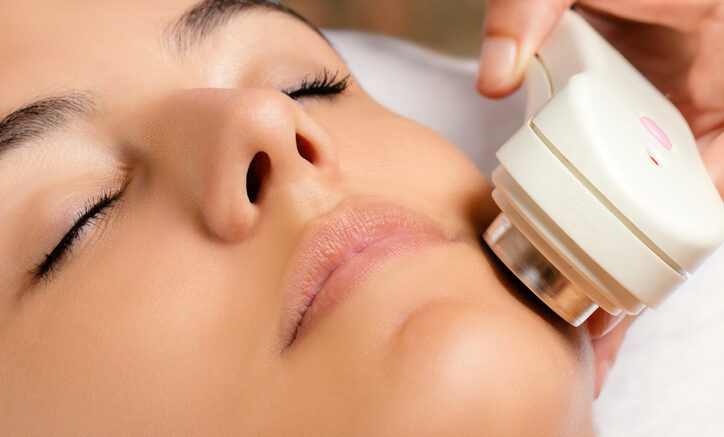Did you know that HIFU Singapore creates precisely controlled thermal injuries at temperatures between 60-70°C to trigger your body’s natural collagen production? High-Intensity Focused Ultrasound (HIFU) delivers thermal energy to depths of 1.5mm, 3.0mm, and 4.5mm beneath the skin surface, stimulating collagen remodeling through controlled thermal injury. This process creates immediate tissue contraction followed by gradual collagen regeneration over 2-6 months.
While HIFU is a non-invasive alternative to surgical facelifts, the thermal coagulation points created during treatment can produce specific physiological responses that patients experience as side effects. The intensity and duration of these effects depend on energy levels (typically 0.4-1.2 joules), density of treatment lines, and the total number of shots delivered.
Immediate Post-Treatment Effects
Redness and Warmth
The thermal energy from HIFU creates microscopic zones of coagulated tissue approximately 1mm³ in size, spaced 1.1-1.5mm apart. This controlled damage triggers vasodilation, causing visible redness that typically peaks within 30 minutes post-treatment.
Cool compresses (10-15°C for 10-minute intervals during the first 2 hours) may be applied as recommended by your healthcare provider. Avoid placing ice directly on the skin, as excessive cooling can impair the inflammatory cascade necessary for collagen stimulation.
Your skin may remain photosensitive for 48-72 hours. Apply a broad-spectrum SPF 50 sunscreen every 2 hours, even when indoors near windows.
Swelling and Edema
Ultrasound energy disrupts cellular membranes and triggers inflammatory mediator release, causing interstitial fluid buildup. Swelling usually develops within 2-4 hours and is most noticeable around areas with looser connective tissue like the eyelids, nasolabial folds, and jawline.
Sleeping with your head elevated at a 30-45° angle and performing gentle lymphatic massage can help reduce swelling. Avoid high-sodium foods and alcohol for 48 hours, as these can prolong fluid retention.
Pain and Discomfort
Patients often describe HIFU sensations as deep warmth or brief, sharp discomfort during treatment. Post-treatment soreness resembles mild muscle ache, especially along the jawline.
Pain management should be guided by your provider — paracetamol may be recommended, while NSAIDs like ibuprofen are often avoided for the first 24 hours since they can theoretically reduce collagen stimulation.
Nerve irritation near treated zones may cause referred discomfort (e.g., headaches or ear pain), which usually resolves within 72 hours.
Sensory Changes
Tingling and Numbness
Thermal energy can temporarily affect small nerve fibers, leading to tingling or mild numbness along the jawline or mouth. These sensations typically resolve within 2-4 weeks as nerves recover naturally.
Vitamin B complex may support nerve health, though clinical evidence is limited. Always follow medical advice before supplementing.
Skin Sensitivity
After HIFU, the skin barrier becomes temporarily compromised, leading to tightness, dryness, and irritation from active skincare ingredients.
Use fragrance-free, ceramide-based moisturizers for 7-10 days and avoid retinoids, AHAs, BHAs, or vitamin C serums until your provider clears you to resume. Apply moisturizer while the skin is still damp to lock in hydration.
Textural Changes
Temporary Bumps and Welts
Small welts (2-3mm) may appear along treatment lines, particularly on thinner skin. These typically resolve within hours without intervention.
If small papules form, avoid touching or massaging them. They usually flatten within 3-5 days. Consult your healthcare professional before applying any topical gels.
Bruising Patterns
Acoustic energy may rupture small capillaries, especially if you take anticoagulants or supplements like fish oil or vitamin E.
Discuss supplement use with your doctor prior to treatment. Bruises typically fade within 7-10 days and can be concealed with makeup after 24 hours.
Delayed Reactions
Temporary Skin Laxity
Some patients experience mild loosening 2-4 weeks post-treatment as swelling subsides and before new collagen formation becomes visible.
Collagen remodeling occurs in three stages: inflammation (days 1–7), proliferation (weeks 2–6), and maturation (months 2–6). Visible tightening becomes noticeable by the third month as Type I collagen replaces Type III.
Muscle Tenderness
Deep HIFU at 4.5mm targets the SMAS (superficial musculoaponeurotic system), causing temporary muscle soreness similar to post-exercise fatigue.
Gentle facial exercises and warm compresses after 48 hours can improve comfort and blood circulation.
Management Strategies
Post-Treatment Care Protocol
For the first 24 hours:
- Avoid hot showers, saunas, or workouts that increase core temperature.
- Cleanse with gentle, non-foaming cleansers and pat dry.
- Keep the skin hydrated and protected from sun exposure.
- Drink plenty of water to support lymphatic drainage.
Skin Recovery Timeline
Days 1–3: Redness and tenderness peak, then start subsiding.
Days 4–7: Sensitivity decreases; gentle exfoliation may resume.
Weeks 2–4: Collagen synthesis begins; maintain moisturization and sun protection.
Months 2–6: Progressive tightening and improvement in skin texture and contour.
Complications Requiring Medical Attention
Seek professional help if you experience:
- Swelling lasting beyond 72 hours or localized pain
- White or gray discoloration (possible thermal injury)
- Numbness beyond 4 weeks or facial asymmetry
- Blistering or open wounds
Commonly Asked Questions
How long before I can wear makeup after HIFU?
Mineral makeup can be applied after 24 hours, once redness subsides. Clean brushes before use and remove makeup gently with micellar water.
Can I exercise after HIFU?
Light walking is fine, but avoid high-intensity workouts, hot yoga, and swimming for at least 48-72 hours.
Will side effects worsen with repeated treatments?
No — most patients experience milder effects over time as their skin adapts.
Can I take supplements to speed healing?
Consult your doctor first. Some may recommend vitamin C and zinc to support collagen production.
What if side effects last longer than expected?
Healing times vary. If symptoms persist beyond 10 days, contact your provider for evaluation.
Conclusion
HIFU side effects generally follow predictable patterns and resolve naturally within a week. Managing inflammation, protecting your skin barrier, and avoiding excessive heat or sun exposure are key to smoother recovery.
If you experience prolonged redness, swelling, or unexpected sensitivity after treatment, visit an MOH-accredited aesthetic clinic for proper assessment.
Patients with chronic skin conditions such as psoriasis Singapore or eczema may require additional care. For individuals prone to eczema, consulting the best dermatologist in Singapore for eczema ensures safe, customized post-HIFU management.
